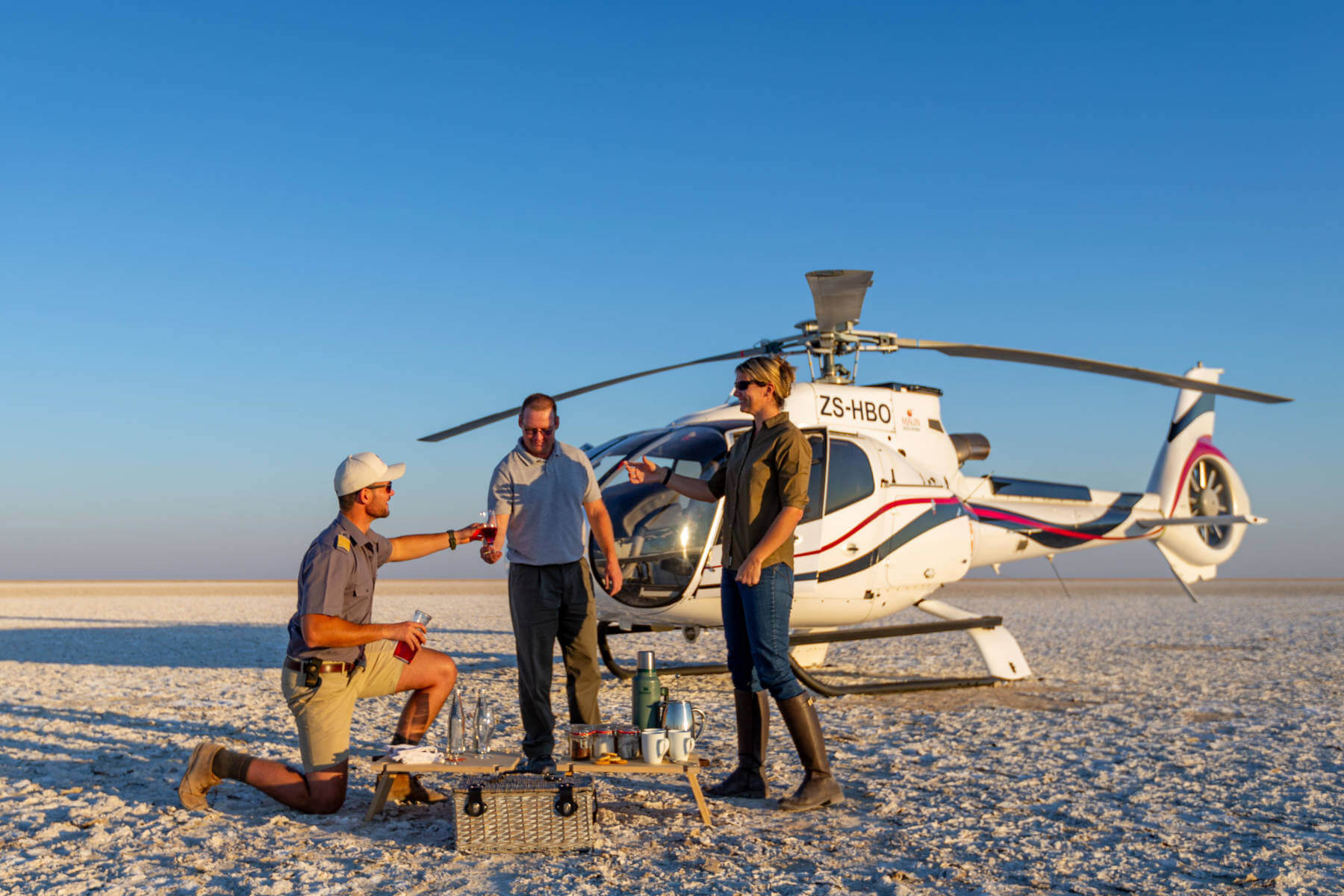October 9, 2024
Bonamy and Ele-Collection: Tackling the problem of plastic in Southern Africa
230 tonnes – the equivalent weight of 33 (large) elephants.
This is the amount of plastic waste to enter Victoria Falls Town and Livingstone (the two towns bordering the mighty Victoria Falls) every month.
That’s 2,760 tonnes every year, the equivalent weight of almost 395 elephants!
Who are Bonamy Private Travel and Ele-Collection?
A travel team with the biggest and most authentic heart, Bonamy Private Travel was born out of a deep love and respect for Africa. Alongside crafting unforgettable experiences and a commitment to uncompromised standards, travelling with Bonamy ensures guests are also contributing (directly and indirectly) to the preservation of Africa’s natural wilderness and supporting its vibrant communities.
A new and exciting partnership with Ele-Collection is another step to their commitment to making a real and lasting impact in Southern Africa.
Ele-Collection is an organisation on a mission to tackle plastic pollution in Southern Africa’s ecologically sensitive areas. Starting with Victoria Falls, the vision will see them scale-up efforts to the entire Kaza Frontier wilderness region* of Southern Africa.
* For context, this Kaza region is equivalent in area to the size of France or Texas, with no fewer than 36 formally proclaimed national parks, game reserves, forest reserves and game/wildlife management areas across 5 different countries (Angola, Namibia, Zambia, Zimbabwe and Botswana).
The plastic problem
Plastic waste is not only an eyesore, but a major environmental and health hazard. 7-10% of global carbon emissions are created by burning plastic and the smoke produced from open dumps around both towns is extremely carcinogenic for residents in close proximity.
Plastic is poisoning the wilderness that brings life and love to so many as well as contaminating water supplies for communities who rely on these sources of water for their livelihood. This is resulting in life-threatening water-borne diseases, altering the behaviour of wildlife through bioaccumulation of plastic in the food chain and plasticosis disease.
But the problem of plastic pollution doesn’t exist in a vacuum. The environmental, social, economic and health risks of plastics need to be assessed alongside other environmental stressors, like climate change, ecosystem degradation and resource use.
A key example is Victoria Falls and surrounding National Parks: home to over 3 million people (and attracts 1 million tourists annually). There is currently limited waste management in the region, and this is most prevalent in the lowest-income areas, where residents are facing multiple intersecting challenges, resulting in the biggest amount of illegal dumping of waste. In Zimbabwe alone, over 6 million people are living on <USD$1 per day, with Victoria Falls being the poorest province in the country. With unsuccessful efforts to date to slow down the waves of waste entering these areas.
Therein lies a critical challenge to protect the planet, its people and wildlife.
But it’s not all doom and gloom. If we can act now to mitigate plastic pollution and promote sustainable alternatives in an inclusive and equitable way, it is possible to protect human health, preserve ecosystems, foster sustainable development and improve livelihoods in the process. This presents a clear and critical opportunity, and this is why the new partnership between Bonamy and Ele-Collection is so exciting.
The sustainable solution
Understanding that recycling is not a sustainable solution in itself, Ele-Collection realises the long-term sustainable solution is to remove all plastic by recycling and repurposing it, closing the plastic loop. But the problem goes much deeper, rooted in social injustices, and therefore the only way to fight plastic pollution (and climate breakdown) is in a community-driven, inclusive and equitable way. How will they do this? Collect, recycle, collaborate and educate.
Collect
The collection of plastic requires a united effort and happens both directly at source and via collection teams. Directly at source involves working with organisations in the region (including the tourism industry) to train staff to understand plastic usage, proper disposal and how to minimise the use of single-use plastics, as well as collecting directly from them and residents.
Whilst this is possible for most, the lowest income, most vulnerable residents in the area are facing multiple challenges and it is therefore critical to ensure these residents are prioritised as part of the solution.
This is where Ele-Collection is harnessing the opportunity to ensure this is a community-driven effort. Central collection centres are complemented with collection points where residents can bring their plastic, deposit it, and get paid for doing so – and this will extend outside of the central Victoria Falls area, tapping into existing social systems in surrounding villages. By working with village headmen to collect this plastic, offer payment to local communities, and in turn educate them about the problem, residents will be motivated to be part of the solution, and this will bring additional benefits and positive impacts for their own communities
The biggest problem areas also mean the biggest solution areas, and with gender disparity of employment in the Victoria Falls area being so prevalent, Ele-Collection is supporting the change in narrative by creating all-women collection teams, with a focus on those who need these jobs the most. This is not only providing women with good green jobs, but facilitating a change of perspective for other women and young girls, through true representation in the industry.
By partnering with existing organisations that support women, such as Zion City (who cares for vulnerable teenage girls), Ele-Collection can offer these women a source of regular and decent income once they enter adulthood.
The all-women collection teams will be earning over double what they could otherwise. But this, along with equitable distribution of these jobs, is not enough. Ele-Collection is also prioritising the quality of these jobs. Collection teams are provided with all PPE and training required to ensure that they can collect waste safely, which also includes certified first aid training and skills they can use outside of the job itself. Protective boots, reflective bibs, gloves, masks and collection sticks are provided at a minimum to all workers. Collection teams are provided with transportation and meals during working hours, and Ele-Collection are even building showers for collectors – working conditions and safety is the highest priority.
Recycle
With the plastic collected, the next stage is recycling. One of the biggest challenges the recycling industry faces is that very few plastic types are recyclable. But Ele-Collection has set up a pilot processing plant that uses technology to change this. By combining equipment that turns all types of plastic into recyclable pellets, with machines that then convert the remainder of the plastic waste into building aggregate, the solution will ensure minimal microplastic and carbon emissions. There is also no cleaning process needed, so the collected plastic can be put into these machines in their current state. This two-fold approach creates sustainable change – displacing the creation of new virgin plastic, whilst locking the rest away for good, truly closing the plastic loop.
Pellets – By pelletising and flaking 3 types of plastic resins (HDPE, PET and PP), manufacturers are provided with feedstock, so they do not have to be reliant on virgin plastic – cutting down plastic production from the top and its associated carbon emissions.
Aggregate – There are 7 resin types of plastic which are converted into building aggregate that is suitable for structural construction – and due to its lightweight and soft composition, this aggregate can work to improve the properties of concrete, giving it the room to expand and contract under different conditions and temperatures
Collaborate and educate
“In the end, we will conserve only what we love, we will love only what we understand, and we will understand only what we are taught.” Baba Dioum, 1968
You don’t know what you don’t know, and the only way this change will be effective and long-lasting is to ensure it is supported by local people, which requires collaboration and education. This is possible through a collective effort with organisations and individuals who firstly understand the problem and want to be part of the solution. By educating and training industry employees as well as resident collection unit teams, capacity can be built directly in areas to facilitate long-lasting ownership and change. Future generations can also learn about why this matters and what they can do about it, to ensure the proper disposal of waste in the area is understood and prioritised.
Collaborating with local community organisations such as Zion City, Children in the Wilderness, Pristine Victoria Falls Society, Elephant-Crew, Victoria Falls Wildlife Trust, and Connected Conservation is a perfect way to strengthen partnerships, to be able to build and mobilise a coalition of stakeholders who can speak with one voice, and advocate a higher level for wider change, replication, funding and scaling of solutions.
The next steps to making the vision a reality
This is an exciting time. Ele-Collection is at the very beginning of the process, with the first collections starting right now at the pilot plant in Victoria Falls. The next 3 years will be focused on matching the plastic output of Livingstone, Hwange and Victoria Falls – with machines that can match all the plastic produced and address historical plastic pollution at the same time.
They expect to employ 50 female plastic pickers by the end of 2025 as well as a full processing team of 10.
This is not putting a plaster on the wound, but addressing ALL of the plastic output – a model that can then be scaled and replicated in other areas, one step closer to the wider mission of cleaning up the Kaza region.
How is Bonamy Private Travel supporting?
The Bonamy team’s support is two-fold. Bonamy can donate a portion from each trip to help this cause, as well as introducing a plastic pledge – an optional $20 per person onto all future Bonamy trips. Each pledge will fund the removal of 50kg of plastic from the environment, which will then be turned into building aggregate and recyclable plastic pellets.
But their support extends beyond the financial. Bonamy and Ele-Collection share the same core values – to restore ecosystems, conserve wildlife, whilst improving and creating sustainable livelihoods for those most in need, for lasting change. Given this amazing initiative is just getting started, the team at Bonamy are able to actively participate and support this through dedicated time.
This is not just a drop in the ocean; it’s a commitment to driving real positive change in the communities where they work and love. The magic of this land is being fought for, and Bonamy is part of that fight.
So now imagine you have just landed in Victoria Falls, to tick off your bucket list item, and you are met with a clean, clear and captivating view, where there is no plastic to obstruct your experience, where local communities are empowered to share learnings and protect the land and all its inhabitants.
THIS is the real bucket list item.
Create your own bucket list adventure with the Bonamy team here
Learn more about Ele-Collection here
Photos credited to Toby Pheasant
Written by Emma Blunt for Luxuria Lifestyle International and Luxury Safari Magazine







